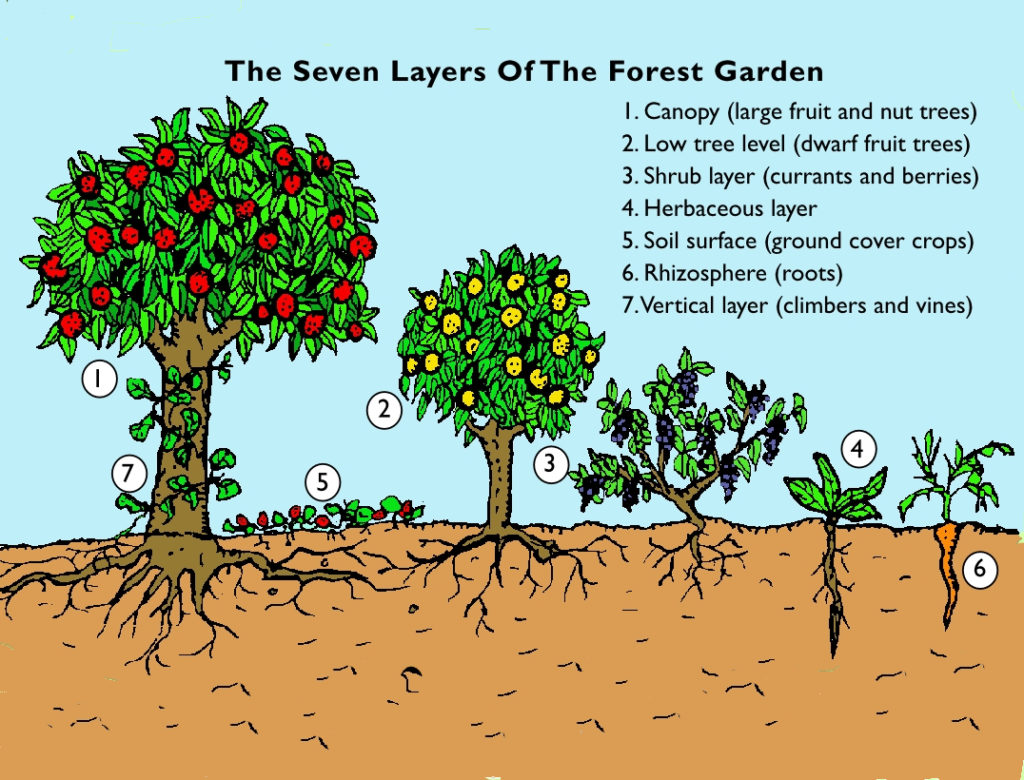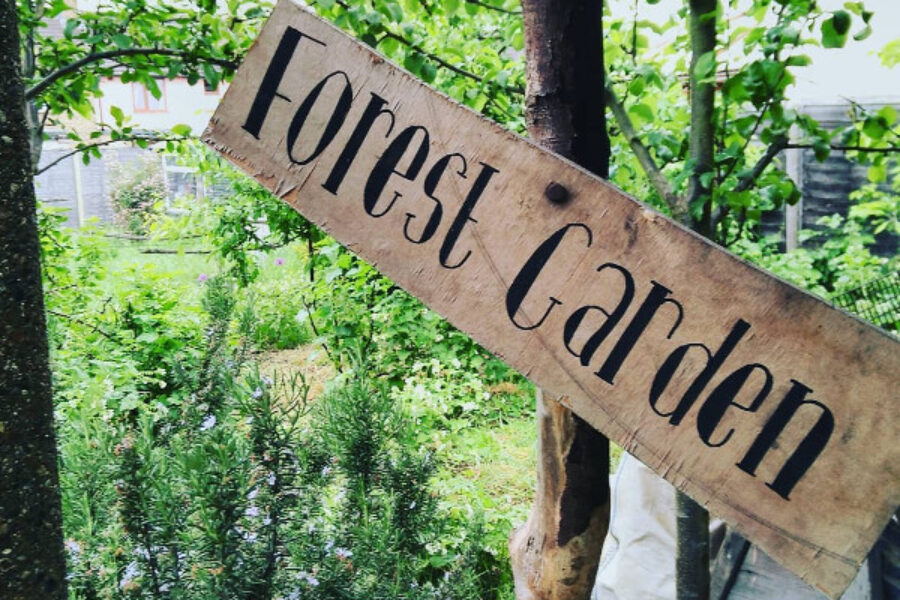About this course: Forest gardening is a low-maintenance sustainable plant-based food production system, incorporating fruit and nut trees, shrubs, herbs, vines and perennial vegetables. The design principles can be replicated in even the smallest of urban gardens including public parks, allotments and school grounds – find out how, and learn how to implement this abundant system in your own garden or community space with Graham Burnett, author of Permaculture A Beginner’s Guide and the Vegan Book of Permaculture and experienced forest gardener.
The forest garden concept was pioneered in the UK by Robert Hart, who examined the interactions and relationships that take place between plants in natural systems, particularly in woodland, the climax eco-system of a cool temperate region such as the British Isles, as well as the abundant food producing ‘home gardens’ of Kerala. This led him to evolve the concept of the ‘Forest Garden’. Based on the observation that the natural forest can be divided into distinct layers or ‘storeys’, he developed an existing small orchard of apples and pears into a highly productive edible landscape. Literally thousands have since been created in both in the UK and around the world:
“Obviously, few of us are in a position to restore the forests. But tens of millions of us have gardens, or access to open spaces such as industrial wastelands, where trees can be planted and if full advantage can be taken of the potentialities that are available even in heavily built up areas, new ‘city forests’ can arise…” (Robert A. de J. Hart)
Course content includes –
- What is forest gardening?
- A short history of forest gardening
- Annuals vs perennials and tree crops – food for a future!
- Principles of forest gardening
- Forest garden design step by step
- What do you want from your forest garden?
- Selecting appropriate species for your forest garden
- Urban forest gardening for small gardens and community projects

Location; Hawkwood Nursery, 115 Hawkwood Crescent, Chingford, E4 7UH
Date; Saturday 6th May, 10am to 4.30pm
Cost; £50





